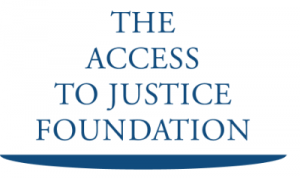Collective Actions and Access to Justice
The Access to Justice Foundation is the nominated charity to receive undistributed damages from opt-out collective action cases in the Competition Appeal Tribunal under the Consumer Rights Act 2015.
This represents an exciting opportunity to improve access to justice by making impactful grants which help people get access to the legal help that they need. The regime is still in its early days and so we have not as yet received any funds from this source but are working closely with everyone involved to ensure we can make the most of this opportunity.
Engaging with cases and raising awareness
Several collective actions are now progressing through the Competition Appeal Tribunal, creating a significant opportunity to boost access to justice for more people.
We actively engage with these cases while working alongside key partners to build awareness of our role. Together, we’re ensuring the collective actions regime fulfils its purpose – helping more people access the legal advice they need.
Undistributed damages from collective actions represent one of the innovative funding models we’re exploring in our research project Mixed Funding Models for Free and Early Legal Advice with the Centre For Socio-Legal Studies, funded by the Nuffield Foundation.
What happens where cases settle?
While the law is still developing in this area, we haven’t yet seen enough cases through the Competition Appeal Tribunal to establish clear patterns. We believe settlements should work similarly to post-trial outcomes, as they do in many other countries. We’re working with experts to help shape this emerging area of law.
Updates
Collective Actions Regime Review: Our Response to the Call for Evidence
Collective Actions Regime Review: Our Response to the Call for Evidence It is crucial that
Competition Appeal Tribunal Grants £3.78m to The Access to Justice Foundation
Competition Appeal Tribunal Grants £3.78m to The Access to Justice Foundation The payment to charity
Opportunities to Secure New Funding for Free Legal Advice
Exploring Opportunities to Secure New Funding for Free Legal Advice Join us on 15 September
Working collaboratively
We’re committed to working with partners to develop a strategic framework that maximises the benefits of undistributed damages.
We collaborate with key sector partners including the Collective Redress Lawyers Association (CORLA), the Association of Consumer Support Organisations, and the Class Representatives Network.
We’ve also formed two advisory groups that bring together experts to guide our work:
- Our Competition Appeal Tribunal Advisory Group helps us connect with the competition law community.
- Our Funding Advisory Group helps us develop effective approaches for distributing collective action funds. We’re grateful to partner with experts from: Which?, Consumer Voice, Citizens Advice, Advice UK, Age UK, and the Law Centres Network.
